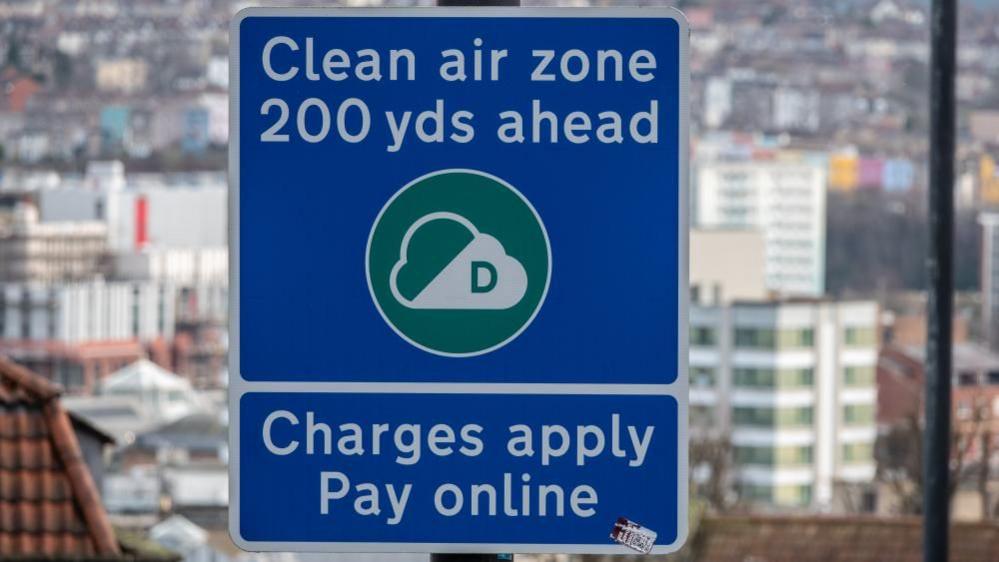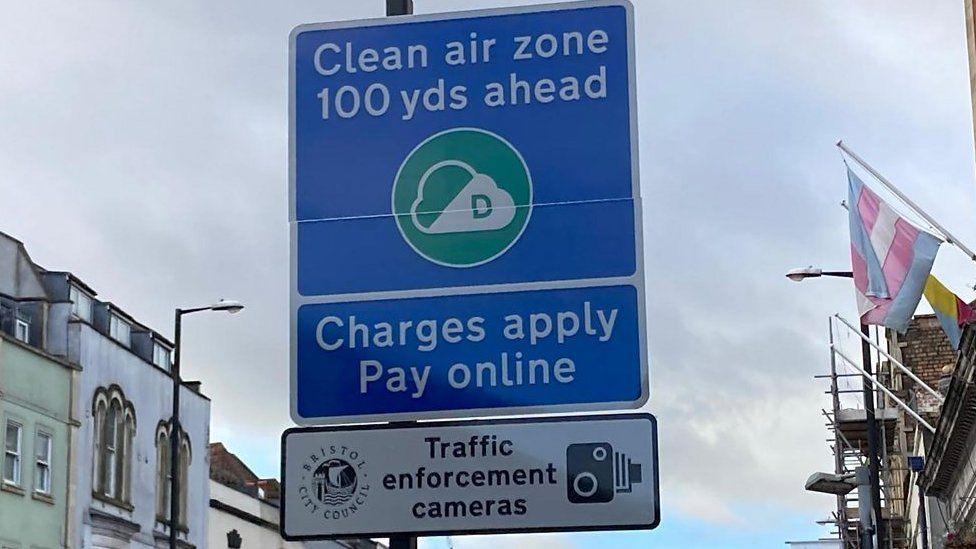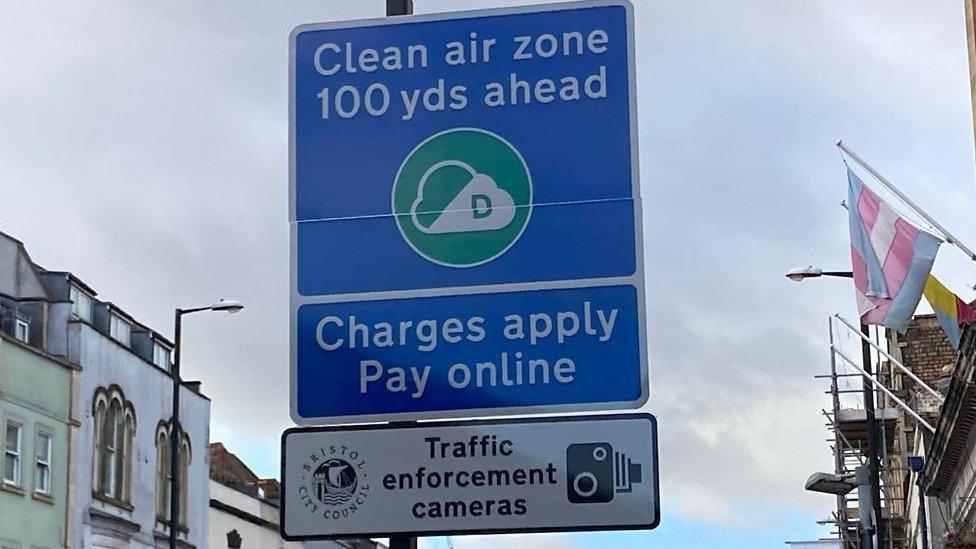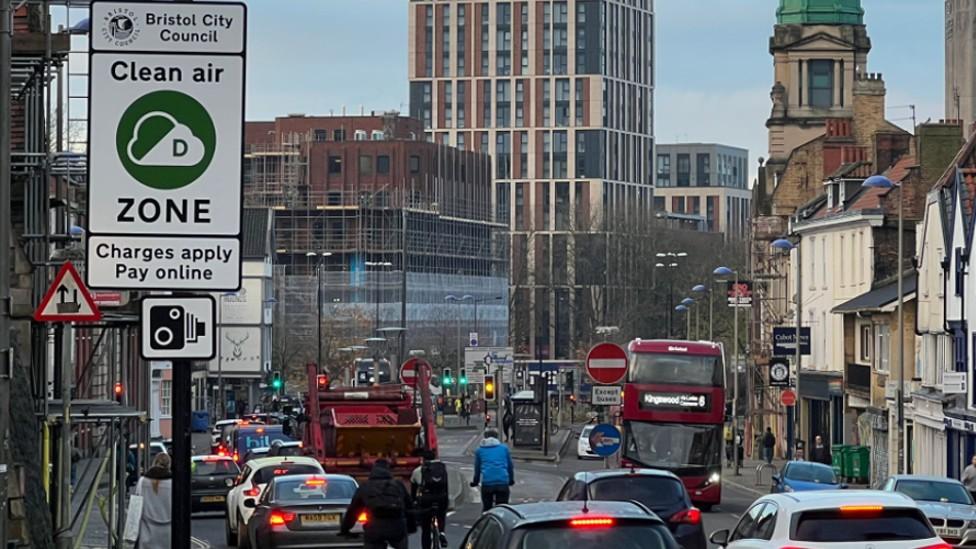Clean air zone charges may rise to tackle pollution

The clean air zone has not yet brought pollution in Bristol within legal limits
- Published
Motorists are being warned they may face higher charges for driving into a Clean Air Zone (CAZ) after research revealed pollution was still above legal limits.
The CAZ was launched in Bristol in 2022 in an effort to bring down levels of nitrogen dioxide, a harmful pollutant, but a report prepared for the city council showed pollution was still too high.
"One option under consideration is to increase CAZ charges to encourage higher levels of compliance," the council report reads.
The report recommends a public consultation be held on increasing the fees, which are currently £9 per day for non-compliant cars and light goods vehicles and £100 per day for heavy goods vehicles, buses and coaches.
The CAZ led to a 12.6% reduction of nitrogen dioxide levels inside the zone in its first year, according to council data.
On Park Row and Upper Maudlin Street near the Bristol Royal Infirmary the reduction was even higher, at more than 20%.
In its second year, nitrogen dioxide levels inside the CAZ reduced again, but by 5.1%.
Government regulations state nitrogen dioxide levels must not exceed 40 micrograms per cubic metre of air.
That level, according to the report, is still being breached on Bond Street and Colston Avenue.
"Provisional data suggests that under a business as usual scenario, air quality compliance at Colston Avenue may not be achieved until 2029 and at Bond Street by 2028," the council report reads.
Given that, the report suggests increasing the charges for entering the zone in a non compliant vehicle.
"Since the CAZ was introduced in 2022, rising inflation, shifts in travel behaviours, and smaller reductions in nitrogen dioxide levels in 2024 than in 2023 suggest that the current charges may no longer act as a strong deterrent."
The report is due to be discussed at the council's Environment and Sustainability Policy Committee on 6 November.
Bristol City Council has been contacted for comment.
Get in touch
Tell us which stories we should cover in Bristol
Follow BBC Bristol on Facebook, external, X, external and Instagram, external. Send your story ideas to us on email or via WhatsApp on 0800 313 4630.
Related topics
- Published10 September 2024

- Published16 January 2024

- Published28 November 2022
